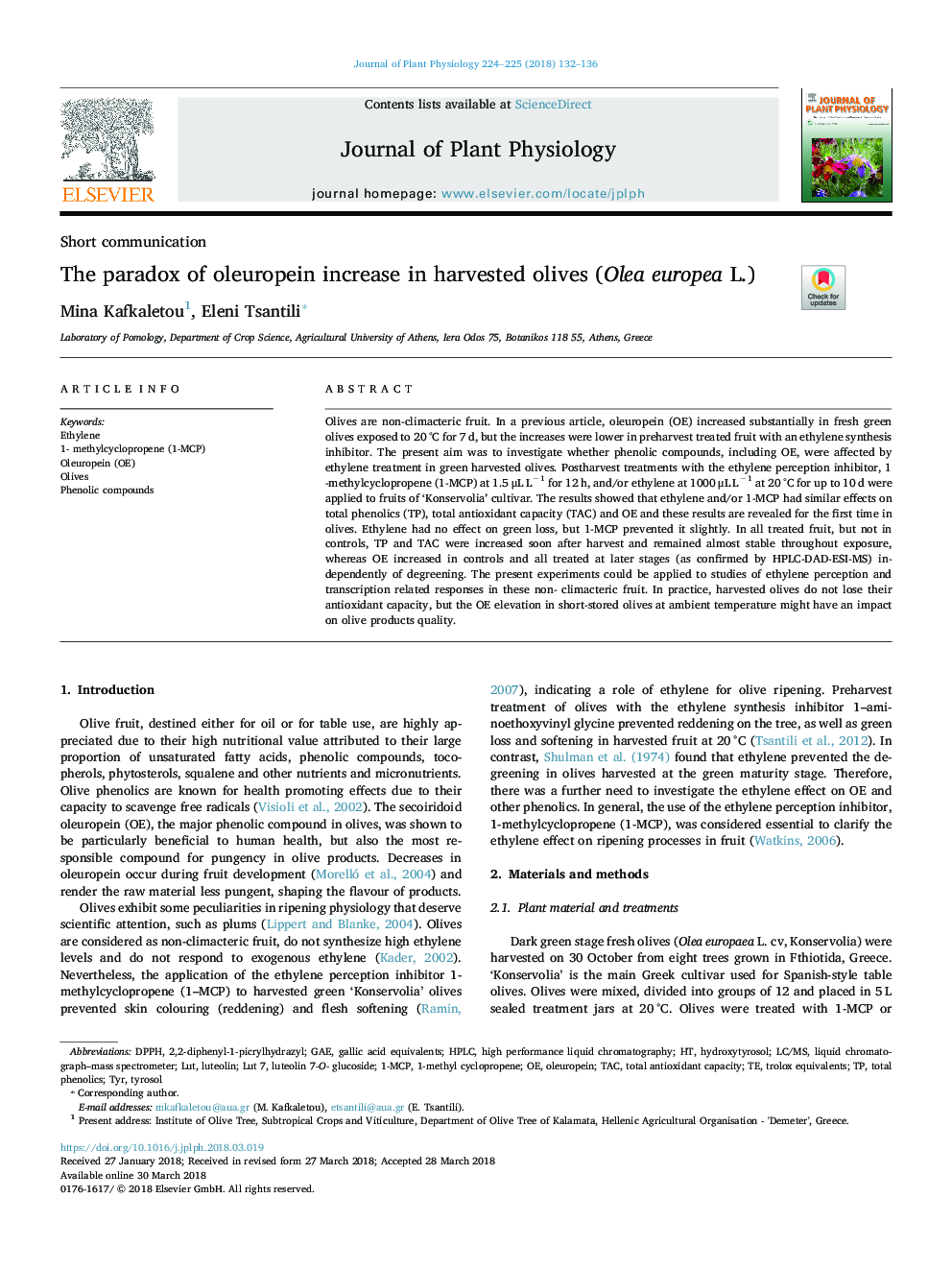| Article ID | Journal | Published Year | Pages | File Type |
|---|---|---|---|---|
| 8386821 | Journal of Plant Physiology | 2018 | 5 Pages |
Abstract
Olives are non-climacteric fruit. In a previous article, oleuropein (OE) increased substantially in fresh green olives exposed to 20â¯Â°C for 7â¯d, but the increases were lower in preharvest treated fruit with an ethylene synthesis inhibitor. The present aim was to investigate whether phenolic compounds, including OE, were affected by ethylene treatment in green harvested olives. Postharvest treatments with the ethylene perception inhibitor, 1 -methylcyclopropene (1-MCP) at 1.5â¯Î¼Lâ¯Lâ1 for 12â¯h, and/or ethylene at 1000â¯Î¼Lâ¯Lâ1 at 20â¯Â°C for up to 10â¯d were applied to fruits of 'Konservolia' cultivar. The results showed that ethylene and/or 1-MCP had similar effects on total phenolics (TP), total antioxidant capacity (TAC) and OE and these results are revealed for the first time in olives. Ethylene had no effect on green loss, but 1-MCP prevented it slightly. In all treated fruit, but not in controls, TP and TAC were increased soon after harvest and remained almost stable throughout exposure, whereas OE increased in controls and all treated at later stages (as confirmed by HPLC-DAD-ESI-MS) independently of degreening. The present experiments could be applied to studies of ethylene perception and transcription related responses in these non- climacteric fruit. In practice, harvested olives do not lose their antioxidant capacity, but the OE elevation in short-stored olives at ambient temperature might have an impact on olive products quality.
Keywords
Related Topics
Life Sciences
Agricultural and Biological Sciences
Agronomy and Crop Science
Authors
Mina Kafkaletou, Eleni Tsantili,
